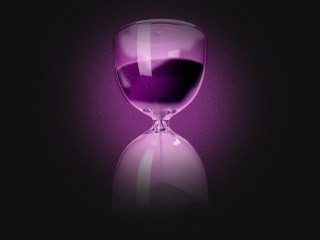5 Mental Health Reminders for Indigenous Peoples in the U.S.
From a therapist who gets it.
This time of year can be especially hard for Indigenous peoples in the U.S. From offensive school craft projects that rip off Native war bonnets to pervasive narratives of the “peaceful” relations settlers had with the Wampanoag Tribe that invalidate our grief, it makes sense if you struggle with reminders of your ancestors’ genocide.
Listen, as American Indian or Native Alaskan (AI/NA) peoples, we’re blessed that our communities have carried our ancestors’ wisdom for countless generations, nurturing our spirits with traditions and customs that speak to who we are. But we’ve also endured unspeakable collective trauma over centuries, and that pain can be passed down if we don’t take time to heal. (You might’ve heard this concept described as intergenerational trauma or historical trauma.)
As a licensed independent associate clinical social worker who specializes in intergenerational trauma and trauma therapy, I’m not new to this. I’m also a proud Red River Métis woman of the Historic Métis Nation and descendant of the Turtle Mountain Band of Chippewa who was raised in community on the reservation of the Tulalip Tribes of Washington (/tʊˈleɪlɪp/, Lushootseed: dxʷlilap) of the Snohomish, Snoqualmie, Skykomish people. So I understand that each of our tribes and nations are unique with their own customs and identities.
I know how the mental health needs of Indigenous people are often overlooked, with ongoing disparities in health care access and income making it harder to get the support we need and deserve.
Plus, mainstream resources often fail to understand the unique challenges we face and the nuances of AI/AN peoples. For example, Western culture centers on individualism and, in turn, shames AI/AN peoples’ interdependence. But our mental health depends on the health of Mother Earth, our families, our elders, animals, traditions, food, songs, and our ways of life. We cannot separate these things—and I invite you to feel proud that we do not.
If you’re part of this community and want to better your mental health and your community’s collective health, you’ll want to connect with resources that validate your lived experience on top of tapping into actionable tips that complement your culture. And I’ve got you covered. Read on for five ways you can center your mental health today.
1. Nurture your connection to nature.
You’ve probably experienced how good it can feel when a cool breeze blows by or raindrops dot your forehead. More and more research suggests being in nature is good for us because it may reduce stress levels and increase happiness and self-esteem. But we don’t need research or scientists to tell us what we’ve known to be true for centuries.
We are a part of nature, and nature is a part of us. We are designed to be stewards of our earth, and as we care for her, she cares for us. It can be tough these days with technology fighting for our attention and desk jobs galore, but we have to remember to get outside and connect to our environment whenever possible.
Try it: Put your bare feet on the earth, and feel the sun warm your skin. You could even go on hikes, sit under a tree, watch the sunset, listen to the birds, or get dirty tending to some plants. If you can do nothing else on this list, you can start here. Find nature, and you’ll find yourself again.
2. Reconnect with cultural practices.
Our people have survived centuries of government policies intent on cultural suppression and assimilation, which directly relate to higher rates of chronic disease and poor mental health. But knowing our history and actively participating in the cultural practices we were denied can help us feel confident, become more connected to our community, and cultivate compassion for ourselves and each other. It may also help you heal from intergenerational pain.
We are a living culture full of the wisdom and hurt of our ancestors and ancestral lands. And we are alive with creativity, love, power, and resilience. So tune into that by making new art, singing meaningful songs, performing dances, and learning all the traditions too. Stand proud as you honor your heritage, pass down customs, and breathe new energy into our way of life.
3. Tap into your community.
Most of us grew up hearing, “all of my relations,” right? For those who didn’t, it’s the idea that we are all connected—everything to everyone everywhere. This knowledge often feels like the biggest clash we have with Western culture, which emphasizes “individual” success and can make us feel like our way of life is somehow wrong. But let’s reframe and celebrate our close ties.
Our success is communal and found in the strength of our relationships. Our friends are our cousins, our cousins are our siblings, our “second cousins” (what’s that?) are our nieces and nephews, and all of our elders are our aunties, uncles, and grandparents. We’re all related and inherently understand the importance of interpersonal relationships. Plus, we aren’t pushed to go out and make a name for ourselves in the big world, and that’s OK! Multigenerational living is a blessing, not a failure. You don’t need to live far away from home to have value.
We also know our impact on the environment affects the whole world, and it’s OK to want to be a good steward of our land.
Living in two cultures with such different value systems is hard, but you get to decide what works best for you. Regardless, know that connection to a community is vital to your well-being. Wherever you call home, whomever you call family, stay locked in as you give and receive love. This might look like sharing meals together, reminiscing on the good times, laughing together, getting curious about the inner world of your loved ones, and staying vulnerable by sharing the good and the bad in your life.
If you weren’t raised with your tribe or community, go and seek it out—it’s never too late to go home and learn who you are and where you come from. You could join ceremonies, attend a local powwow, reach out to a trusted shaman in your tribe or area, and seek out culturally competent health care providers to walk with you on this journey.
4. Check in with your body and heart.
Our ancestors knew the connection to our body, emotions, thoughts, and behaviors is sacred. Unfortunately, many of our recent generations endured so much trauma that it was too painful to stay connected to their body and emotions.
It’s our responsibility to find our way back to ourselves, our ancestral knowledge, the great spirit, and all living things. Performing a body scan is a great way to check in with yourself. Start by finding a comfortable space, then bring your attention to your feet. Notice any sensations or tension. Take a deep breath and observe how each part of your foot feels. Then, slowly move up your body and repeat this process with every new part, like your legs, your chest, and your neck.
If you notice an emotion during your body scan, pause and try to name what you’re feeling without judgment. Focus your attention on what the emotion feels like in your body, like nervousness manifesting in an upset stomach. Let the sensation exist while you continue to breathe slowly. This self-awareness practice can help you understand, accept, and take care of your emotions to promote overall well-being and an open heart.
5. Find culturally competent therapists.
If you’re Indigenous, you’ve likely felt the effects of historical trauma. If you or your family have a painful history, trauma-informed therapy can help reduce symptoms of anxiety, depression, or post-traumatic stress disorder. Just to name a few benefits of this type of therapeutic work: It can help you learn effective ways to manage and regulate your emotions, gain insight into the impact of your experiences, foster self-empowerment, and reshape negative beliefs while improving your interpersonal relationships.
If you want to try trauma therapy, search for an evidence-based modality, like eye movement desensitization and reprocessing (EMDR). This type of therapy helps your brain reprocess those experiences and thoughts, reducing their emotional impact and encouraging you to move forward with confidence.
Another therapy that’s aligned with Indigenous healing is internal family systems (IFS). IFS recognizes the interconnectedness of individuals with nature, community, and various parts of the self. IFS therapy encourages you to imagine your mind as a team with different members (called “parts”), each having its own feelings, thoughts, and role within the system, and helps you understand and work with these “parts” to foster self-awareness and harmony between them.
Regardless of the type of therapy you choose, the most effective tool will always be an excellent connection with your therapist. It can be hard to find therapists who are part of the AI/AN peoples community, but we exist. You can find some of us through your tribe’s resources, the Department of Health and Human Services’ Indian Health Service, or directories like Inclusive Therapists. If you can’t find an Indigenous therapist, ask other potential therapists lots of questions to make sure they affirm your identity, are open to learning, and work to decolonize their therapy practice.
The bottom line: Our mental health journey is sacred; it’s a tapestry of culture, history, community, and connection to our planet. By getting back to our roots and taking care of ourselves and others, we become a part of something bigger. That sense of belonging tethers us to our greatest potential: a life well-lived—a life of purpose, beauty, and love. While our tribes may have different teachings, these principles transcend and connect us all. May we love and be loved in community with each other.
Wondermind does not provide medical advice, diagnosis, or treatment. Any information published on this website or by this brand is not intended as a replacement for medical advice. Always consult a qualified health or mental health professional with any questions or concerns about your mental health.




